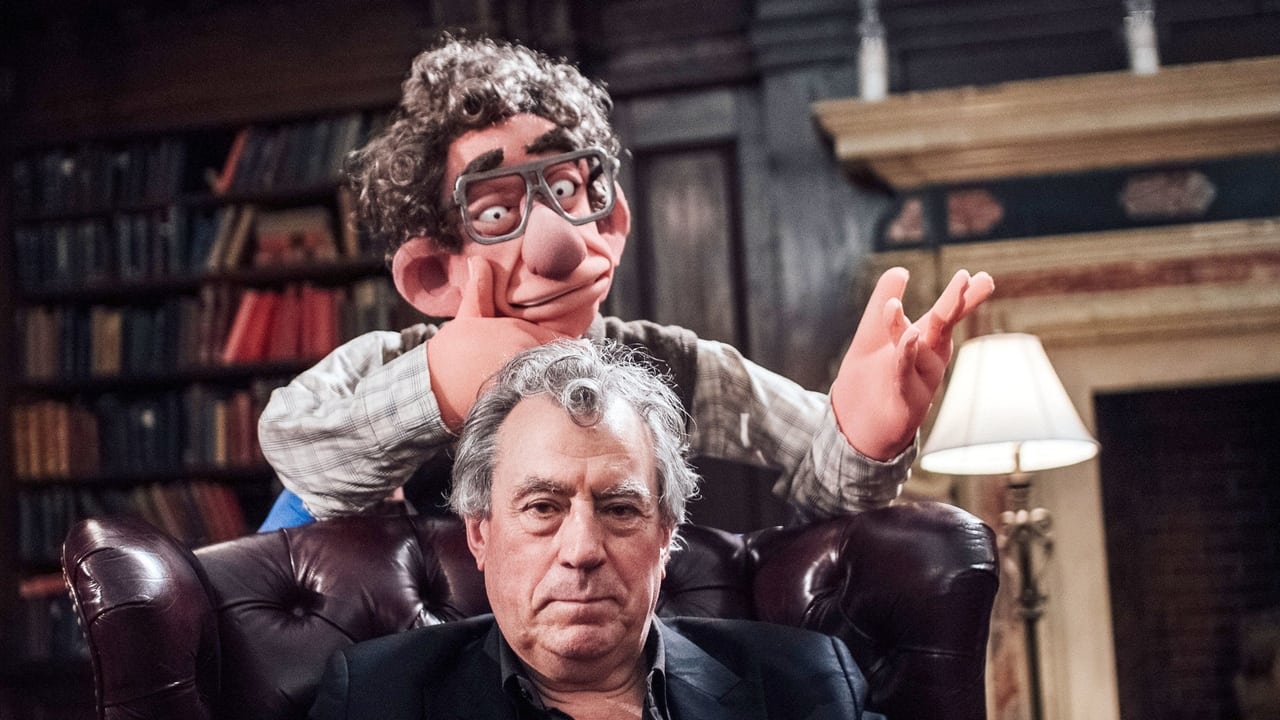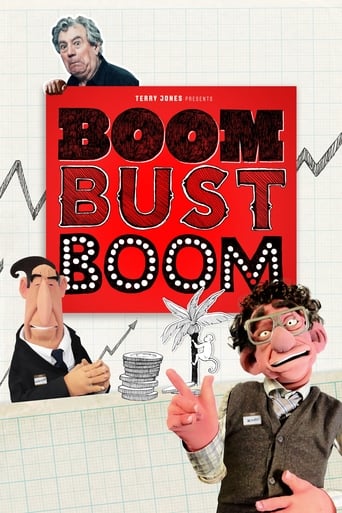



I love this movie so much
Very disappointed :(
Let me be very fair here, this is not the best movie in my opinion. But, this movie is fun, it has purpose and is very enjoyable to watch.
View MoreIf you're interested in the topic at hand, you should just watch it and judge yourself because the reviews have gone very biased by people that didn't even watch it and just hate (or love) the creator. I liked it, it was well written, narrated, and directed and it was about a topic that interests me.
View MoreI found it pretty telling that all the people involved in this project could so easily—and condescendingly—criticize everyone involved (directly or indirectly) in various boom-bust cycles throughout history, but not one could provide a single alternate solution. Sure, some alluded to gauzy notions of a better way forward, but none were brave enough to provide even a single detail of their master plan.Another annoyance was the direct denunciation of capitalism and free markets, apparently because human nature doesn't produce perfect rationality 100% of the time. Well guess what, folks? You're stuck with us. No matter the system, as much as you want, you cannot remove humans from the equation.Yes, I could tell that many of the experts being interviewed wanted to propose some sort of utopian economic vision where all individual decision-making would be revoked by the state and replaced by the technocrats in charge (i.e. them), but none had the guts to say it.So what was the point of the film? It would've been one thing had Terry Jones, et al, simply wanted to convey how wacky boom-bust cycles can be in an informative and entertaining way. Or they could have stated that preventing financial crises was really hard, but thankfully "we have the solution." But all they did was repeatedly allude to a solution that was never offered. And that's because they don't actually have a solution. They simply wanted to demonize capitalism and the very concept of markets (imperfect, but undeniably superior to any other options). But that argument seemed to be based solely on the fact that these pesky, imperfect humans are involved. Which is just weird.When the next bubble bursts it won't be because capitalism is evil. Enough people will have gotten greedy and made poor decisions (as they do), that the market will reset, and ultimately revalue the assets that have become overvalued. That's a market. And any self-professed expert with a PhD who claims he or she could have otherwise priced and maintained all assets perfectly from the start if only we had given them enough power is just a megalomaniac, and a fool.
View MoreI don't know anything about economics but I found this program very interesting and definitely entertaining! At times if I stopped paying attention I got slightly lost, but it explained things in multiple ways to make it easier to understand. The funny clips from movies and cartoons were great and well-placed to highlight what was being talked about.
View MoreThis was a pretty good retelling of the financial crisis and told it in an interesting way, which is sure to please regular folks who aren't all that into these matters.The illustrations were good, overall very nice production value.Bubbles are mentioned - by a dedicated song even (!). However, it is glaringly obvious that no views on the current bubble(s) we're in were allowed to be included in the final cut of the film.It would have been a lot better if they had gone into more detail on how the current state of the economy is far worse than the last financial crisis and what people can do to protect themselves.
View MoreOK, so maybe you have to be an economist (like me) or a financial analyst to enjoy this 70 minute trip through the periodic financial crises (like the one in 2008) that seem to plague capitalism, but I believe any educated person interested in the causes and after-effects of the 2008 crisis can enjoy this film. It's an interesting combination of animation, puppetry, and original songs that's melded with serious commentary by a number of well-known and influential economists including three Nobel Prize winners. We learn about the various "asset price bubbles" that preceded the unsustainable run-up in home prices prior to the financial crisis and stock market crash of 2008, like the tulip bubble in 17th century Holland, the South Seas bubble in 18th century Britain, and of course the Wall Street crash of 1929. Terry Jones, one of the filmmakers, proves once again that the Monty Python comedy troupe harbored some of the most intelligent, if zany, comedians you'll find anywhere.The larger issue in this unusual and amusing documentary is the inability of the prevailing mainstream paradigm in economics (the "neo-classical synthesis" for you aficionados) to reflect the mass psychology of financial markets and institutions and their periodic proclivity to either "irrational exuberance" or morbid fear. In addition, the regulatory authorities periodically accommodate market excesses by deregulation and then become more restrictive when the financial excesses have already wrecked the real economy as shown in this film. I am largely sympathetic with this point of view and have long felt that economics suffers from "physics envy" with its elaborate mathematical models (made possible by the assumption that economic agents are optimizing and calculating machines) and its emphasis on market equilibriums. Some of the speakers in this film suggest that economics would be more realistic if it became more of a narrative and descriptive discipline similar to the other social sciences and made less heroic assumptions about the rationality of its agents. Of course, that would be at the expense of the "rigor" of the discipline. Unfortunately, there were no counter-arguments presented by the filmmakers, and at the end we have one economist say: "we have to re-design a new economy." When I hear that, I'm left with the thought that just maybe the periodic excesses in financial markets are the necessary price we must pay for the dynamism of a market economy.
View More